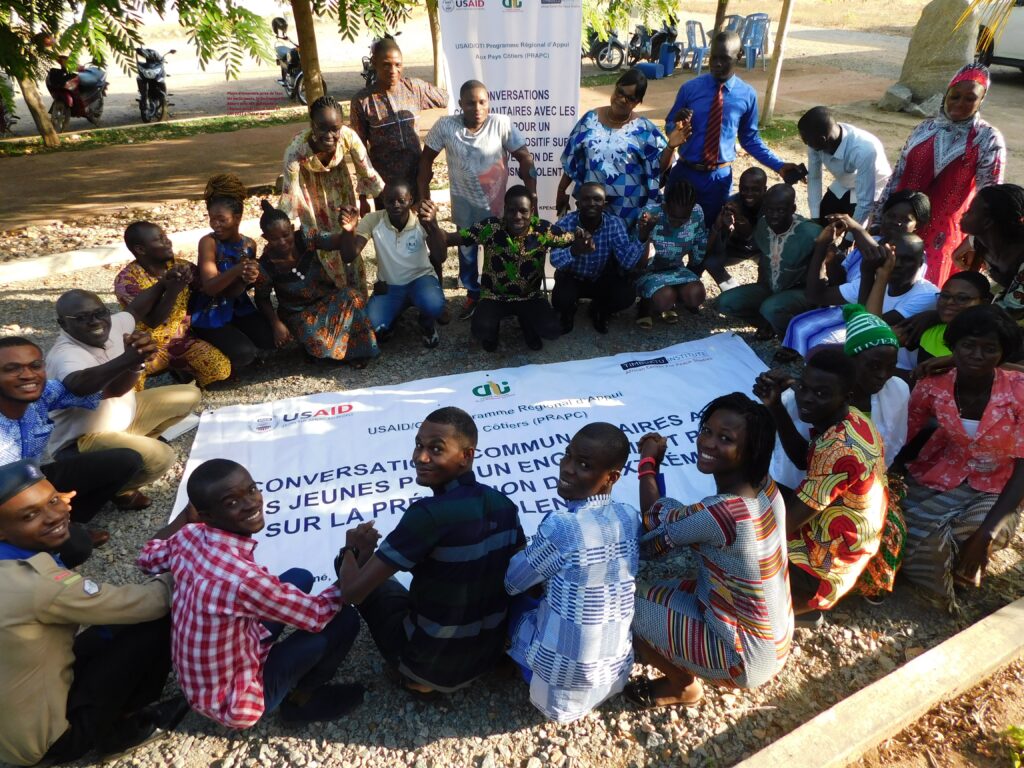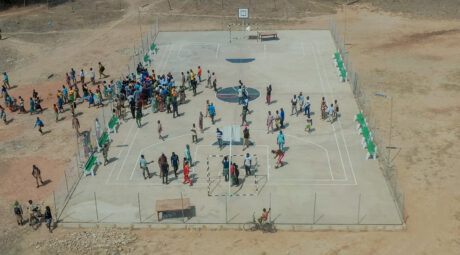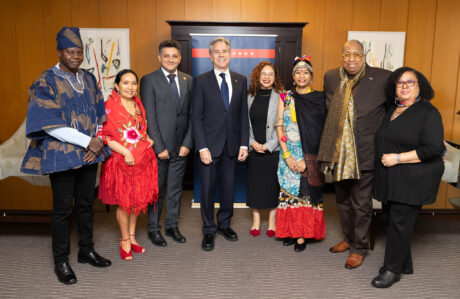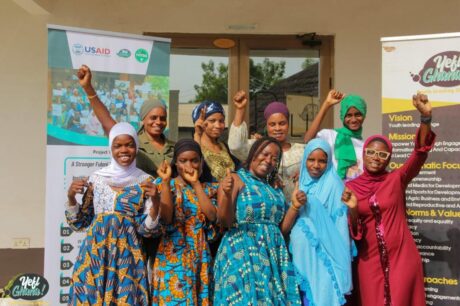In a narrow strip of northern Togo, the town of Cinkassé touches the border with Burkina Faso on its north and Ghana to the south. With high rates of poverty and a limited presence by the central government, the area is vulnerable to instability. In July 2022, extremist violence in Burkina spilled over in a deadly attack as armed groups targeted civilians and soldiers.
Despite the risks, youth frequently cross the borders to find work on farms. This transit makes them vulnerable to recruitment by violent extremist groups.
Such groups may reach out to youths via mutual acquaintances, enticing them with the promise of a job opportunity across the border. In some cases, youth may unwittingly leave their existing jobs and expend their remaining funds for the trip. When the opportunity turns out to be recruitment by a violent extremist organization, they may feel they have no option but to join.
Gobre Rafiou, a 21-year-old from Cinkassé, says he almost fell into that trap. “Several times I received calls from a childhood friend asking me to give up everything to join him in Burkina Faso for a well-paid job,” Rafiou says.
Fortunately, Rafiou recently participated in an awareness session that alerted him to these types of offers. “With the training, I realized that I certainly escaped a recruitment network of extremist groups,” Rafiou says of the session offered through the Littorals Regional Initiative, a locally focused program that is supported by the USAID/Office of Transition Initiatives

Since 2021, the USAID/OTI program and its partners have implemented activities in Cinkassé to raise youths’ awareness of situations in which they could face the risk of being recruited into violent extremist organizations. The Littoral Regional Initiative partnered with the local non-governmental organization Association Nouveau Visage pour l’Afrique to raise awareness of preventing violent extremism among youth and help them develop strategies to prevent the spread of violent extremism.
From July to November 2021, the association, with support from the USAID/OTI Littoral Regional Initiative, conducted a series of trainings and public awareness campaigns that built the knowledge of 80 young leaders while fostering positive relationships among them.
The efforts sparked action by the participants. For example, in the Komologo district of Cinkassé, Association Nouveau Visage pour l’Afrique’s activities highlighted that when youth cross borders to work on farms, they face a higher risk of being recruited by violent extremist groups. Recognizing this threat, the youths set up their own agricultural cooperative to engage in market gardening in their community.
The training sessions also emphasized the importance of fact-checking and debunking false rumors related to violent extremism. Youths who completed the training created a WhatsApp group called “Stop Violent Extremism” that grew to 57 members. The group serves as a platform where youth can counter disinformation, discuss extremist violence and share tactics for avoiding it.
Creating a space for positive youth engagement
Youth also cross the border to seek entertainment. With a lack of facilities and conservative social environments in their own communities, youth in Cinkassé often travel to seek amusement, whether across the border to Burkina Faso or Ghana or south to the Togolese town of Dapaong. These trips can bring them in contact with violent extremist groups.
Recognizing the importance of providing a space for positive youth engagement and collaboration, stakeholders prioritized the establishment of a youth center in Cinkassé.

USAID/OTI’s Littoral Regional Initiative provided financial support to rehabilitate an existing building starting in February 2023. The mayor’s office collaborated with youth representatives from 16 neighborhoods to select facilities to be included in the center. The center was inaugurated in August 2023 with a basketball court, auditorium, library, study room and administrative offices.
By offering a range of facilities, the mayor’s office and Littoral Regional Initiative hope the center will foster positive youth engagement and social cohesion, thus reducing the risk of violent extremism while providing opportunities for personal and professional development.
Equipping youth for regional efforts
The effort to engage youth in the fight against violent extremism expanded to the regional level. From April to September 2022, the Littoral Regional Initiative partnered with the National Youth Council (CNJ) and Timbuktu Institute to conduct a comprehensive training program for 150 young participants from throughout the Savanes Region, including Cinkassé, Tone, Kpendjal and West Kpendjal.
The activity helped the youth develop their skills in leadership and communication to promote community engagement among youth. The training program also covered advocacy, conflict resolution, violence against women and girls and organizational development. Through workshops and mentoring, the participants gained valuable knowledge and tools to address the issue of violent extremism.

Youth become trainers and community leaders to prevent violent extremism. The impact of this training program was significant, and participants demonstrated an increased understanding of violent extremism and its underlying causes. They developed effective strategies to engage their communities and raise awareness about the dangers of extremist ideologies. As a result, the trained youth leaders initiated various outreach activities in their neighborhoods, reaching a wider audience and contributing to the prevention of violent extremism at the grassroots level.
One participant, whose name was withheld for security reasons, says the knowledge gained through the program was as valuable as the chance to connect with fellow youth advocates from around the region. “Thanks to the training, I understood the genesis of this phenomenon,” he says. “The opportunity to share with our brothers from Lome, Kpendjal, Cinkassé, Kpendjal West and Tone allowed us to gain in-depth knowledge of the issue of violent extremism.”



